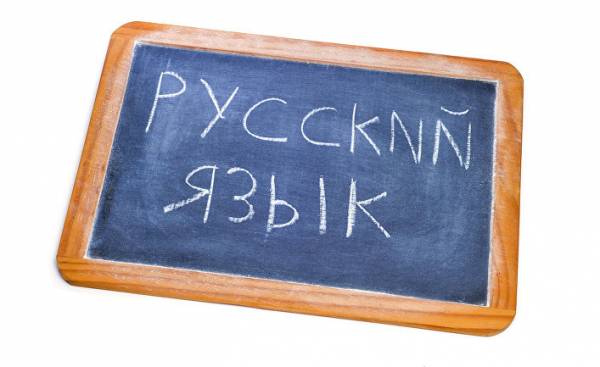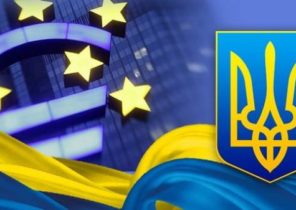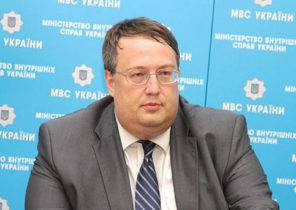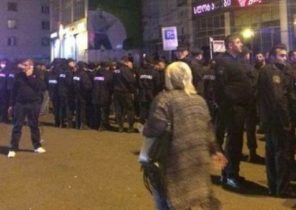
Spoke in Russian not only Leonid Brezhnev, and Karel Havlicek Borovsky, and tomáš Garrigue Masaryk. In the last century, very unpopular language that the students in the schools refused to study today again gaining popularity. As is the situation with the Russian language in the Czech Republic?
In the 60-ies of the last century Koprivica, in Northern Moravia, the Russian language teacher Miroslava Fabianova was a thunderstorm and at the same time the laughingstock of the pupils and many parents.
In addition to the Russian language, Fabianova also taught history in the second class nine-year primary school on Pioneer street. But Russian language was for that ardent Communist is much more important.
She demonstrated this with his frequent tantrums in the classroom. She yelled at his students: “Fools, I am not letting you in high school if you can’t learn Russian”.
Excellent zdeněk Technic that in elementary school said that after graduation will go to study medicine, in front of the class calmly replied to the teacher on her threats, saying that Russian language is nonsense and at the medical faculty it is not useful. Then Fabianova tore his passport with some fives and put a ” b ” in Russian language. She screamed that can put and two.
Comrade teacher loved the Soviet Union and its deceased leader Stalin so much so that in 1956, in protest against the criticism of Stalin and his crimes came out of the Communist party of Czechoslovakia (KSČ). Fabianova was ready to return to the party only after the complete rehabilitation of Joseph Stalin and his exemplary disciple of Clement Gottwald.
Fabianova, which ended up in a psychiatric hospital, was still with the exception of those teachers I have ever met. Almost everyone who taught me this language since middle school to University, was educated and mannered people. This was, for example, Professor Danusha Krizova, who taught Russian literature at the Philosophical faculty in Brno.
Illusion Dubcek
In the 19th century in Czech lands Russian language asked some national leaders who were in favor of Czech-Russian reciprocity. Russian owned Karel Havlicek Borovsky, who in 1842 — 1843 years served as a tutor to a wealthy Moscow family. He returned home disillusioned with life in Russia.
He spoke in Russian and Tomas G. Masaryk and his successor as President Edvard Benes. The first Czechoslovak President Masaryk, who visited Russia during the First world war, as Karel Havlicek, and warned against any illusions about the Eastern Slavic Empire.
Fluent in the Russian language, for example, Alexander Dubcek, who since the mid 20-ies until 1938, lived with his parents in the Soviet Union. Being a Communist functionary, Dubcek later studied in Moscow. Against his will he found himself in the capital of the USSR in August 1968, when after the attack on Czechoslovakia and his other government and party functionaries forcibly taken to the Soviet Union.
That night, this staunch Communist for sure has lost all illusions associated with Brezhnev’s Empire. However, with a sense of satisfaction Dubcek welcomed the arrival of Mikhail Gorbachev and the beginning of its reforms in the USSR.
“Russian action” Masaryk
In the First Republic (until the Munich agreement) the Russian language studied at Charles University and at the University in Brno. Also, the Department of Russian language was at the University of Bratislava. Due to the large number of white immigrants arrived in Czechoslovakia, there were secondary schools where he taught Russian language.
When the Czechs started the so-called “Russian action”, in Czechoslovakia, came a lot of Russian. In the “Golden period” from 1922 to 1928 in our Republic, there were more than 25 thousand Russian. In fact, it was a decade of Renaissance of Russian culture early 20th century, and it happened thanks to the policy of President Masaryk.
After the liberation in 1945, everything changed. With the tacit consent of the Czechoslovak authorities of Russian and Ukrainian immigrants during the First Republic were deported to labor camps in the USSR. And however, at first, the majority of the public admired the new ally, which so perfectly defeated Nazi Germany.
The February coup and the subsequent Sovietization of Czechoslovakia, which brought the mindless copying of all that was inherent in the great Eastern Empire has forced most of society to gradually recover. The brutal Soviet aggression, with hundreds of thousands of soldiers and over six thousand tanks in August 1968 caused the rejection not only of the Soviet Union, represented by the Brezhnev clique, but to a certain extent to the Russian language.
But in contrast to neighboring Poland, Hungary and some other countries among the Czechs and Slovaks never spread expressed anti-Russian sentiment. However, during the so-called normalization of the Russian language teaching caused many rejection.
In Czechoslovakia, the Russian language was a compulsory subject in primary and secondary schools up until the early 90-ies. Often insensitive approach of some teachers and poor knowledge of Russian among students and their parents is further aggravated by the antipathy to this language. Today, the overall situation is different, and Russian study those who are really interested in this Slavic language.
Russian language in retreat?
Future teachers, translators, business people, and others Russian language is taught in universities and other universities, as well as some language and secondary special schools in Prague, Brno, Olomouc, Ostrava, Liberec, Plzen, Ceske Budejovice and other towns. The longest tradition of teaching the Russian language can boast of Charles University in Prague and University circuit in Brno.
In Charles University, for example, has a Department of Russian studies and linguistics (faculty of education), and the Institute for Eastern studies (faculty of philosophy). Its Director Marek Przygoda notes that the Institute is engaged in regional studies of Eastern Europe with focus on Russian Federation and Ukraine and the Baltic countries.
At the Institute for Eastern European studies, you can study under the program “Eastern European research” in bachelor’s and master’s degree. According to Dr. Prihoda, the Institute can be studied separately and together Russian, Ukrainian and also, for example, Lithuanian and Latvian languages.
The Institute has entered into pedagogical and research cooperation agreement with the specialized centers in Russia, Ukraine and the Baltic States. Every year since 2005 the annual Conference of young Slavists. Now at the Institute of East European studies Russian language and literature in the framework of national Philology studies 45 students. 56 study these subjects in the framework of East European studies.
In the future of teaching the Russian language at the Institute for East European studies of the philosophical faculty of Charles University Marek Przygoda no doubt. In recent years there has been a growing interest in the study of Eastern Europe, so Prigoda sure that he would be able at least to maintain the current number of entrants.
“In addition, there is a group of active students and graduates of our Institute. I would like to mention, for example, the Eastern European club and revived the magazine “East”,” says Prihoda. The main task in the future, he believes the formulation of specific research projects involving a large number of foreign academic centres and prominent in this area of the figures.
The descendants of the “children of husák”
In the Institute of Slavonic studies of the philosophical faculty of Masaryk University in Brno employs around 30 people. In total there are 16 specialties, and though Russian language is just one of them, he plays the most important role.
“Russian language can be studied in the framework of Philology, or for practical application in business transactions. We also have linguistic-regional area in which students get acquainted with different languages, including Russian,” — says the Director of the Institute Ivo pospíšil.
“In the last three years, the interest in training in our specialities has increased, but this applies to most areas in the faculty and in the University.” According to Professor Pospisil, through two — three years will finish school children “children of husák”, and you can expect that the growth in the number of students will stop. This will have an impact on the study of other Slavic languages.
With regard to the Ukrainian language, the interest in it has stabilized, including in connection with accreditation of a new specialty “Ukrainian studies”, which together with colleagues was prepared by Peter Kalina.
“We have a bachelor on a speciality “Russian in the us”. This specialty is of great interest. Some graduates are employed in companies Alta and others. Our graduates are teachers with specialties to teach Russian in some primary and secondary schools and even in vocational schools”, — said Pospisil. He adds that the Russian language in these types of schools often competes with the German language.
“I’m going to step aside and mention the Croatian language, which we also teach. Wanting to explore his bring to us are often practical considerations. For example, people want to communicate on holiday on the Adriatic sea, but then their interest deepens”.
The Institute maintains good relations with universities in all Slavic countries, but the degree of cooperation with them is different. “Show interest in Ukrainian universities. We have long-standing relationships with Russian universities in Nizhny Novgorod, Izhevsk and St.-Petersburg, Samara. Other contacts are supported on a personal level and through professional collaboration.
We regularly hold international conferences, seminars and workshops, which attract the interest of Russian researchers. We have learned and are learning some Russian from Russia and those whose families settled in the Czech Republic. However, we would have welcomed the Russian colleagues and most, importantly, systematic support in the form of scholarships, internships and literature.”
Russian language opens the world
Modern Czech students studying Russian language, can inspire the example of their predecessors. An example of a Czech psychologist Vladimir Realized that in their professional activities in contact with the Russian language very often. Have never seen separately they are not engaged, but it is so well mastered that translated into the Czech language the selected works of the Soviet psychologists Sergei Rubinstein and Lev Vygotsky, recognized even in the West.
After coming to power of Mikhail Gorbachev to Russian colleagues from the Academy of Sciences have repeatedly turned to Makalu, which before had problems with the regime of times of normalization, and requested his assistance in making tests in psychology. Under Stalin in the Soviet Union testing was banned.
The Professor was smart enough still remembers what a free atmosphere prevailed in 80-e years in Moscow in the universities, there are some discussions on different topics, while we have at that time was harsh regime of Husak.
Architect Musilova Lenka from Brno is also effectively used her knowledge of Russian language, which she learned mostly during his studies in high school. Millennium Musilova participated in the reconstruction of the Palace for the President of Kazakhstan Nursultan Nazarbayev to only include the Kazakh capital Astana, former Tselinograd.
For two years she Musilova not once visited Astana, where he worked for seven to ten days. There she met the descendants of those Russians who were deported to Kazakhstan under Stalin. Musilova remembers that it was very interesting and nice to talk with the Kazakh and Russian colleagues.
Russian is one of the world’s languages
Russian language is one of the world. It is spoken by tens of millions of people. It is the native language of prominent writers: Alexander Pushkin, Anton Chekhov, Leo Tolstoy, Boris Pasternak, Alexander Solzhenitsyn. His wonderful texts in this language sang Vladimir Vysotsky and Bulat Okudzhava.
The Communists, I sometimes heard on the “Radio Soboda”, broadcasts from Munich, the voice of human rights activist and friend of Czechoslovakia, Andrei Sakharov. And I always thought how soft sounds Russian, and how it can be beautiful. That’s just to say no to Leonid Brezhnev or some Russian Marshal at the military parade on red square.
See for yourself the pleasant sound of the Russian language, I had the opportunity during the first visit to the Soviet Union in 1987, when he visited Moscow Theater of satire. Then five days I discussed a variety of topics with actors, playwrights and other workers of this unique theatre stage.
At that time in the USSR, unlike the us, there was freedom of speech, and the representatives of the creative community used it to the fullest. They were keenly interested, in particular, the Czechoslovak events of 1968.
Without fear and with great joy I join with my colleague from the satirical theatre “Evening Brno” told them the story of the Prague spring, and told first of all about a massive military invasion, and also about the peaceful non-violent resistance of most Czechoslovak citizens.
Our Russian friends were very surprised: despite successfully developing publicity at the time, just that they did not know.







